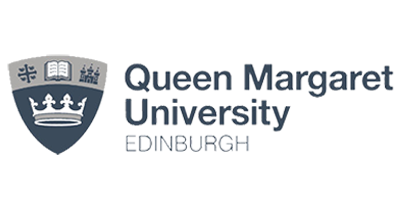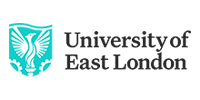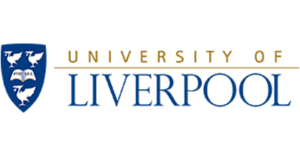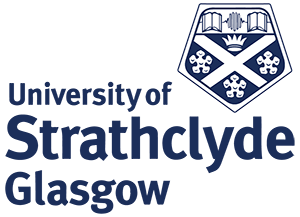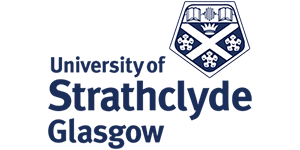MSc Applied Computing

DURATION
Flexible
Mode of Study
Online
Start Date
September 2022
Overview
Do you want to boost your career prospects by studying for an applied computing Master’s degree alongside your current job?
On this MSc Applied Computing Learning at Work Master’s course, you’ll develop the ability to reflect on your own decisions within the workplace and become an independent learner, able to make sound professional judgments when faced with complex IT-based problems. While you progress your existing analytical or programming skills, you’ll be learning how to manage teams and projects effectively too.
Because the course is work-based, you need to already be in a full-time, part-time or voluntary role. If you don’t have an undergraduate degree, you could still do this postgraduate course if you have several years experience in a responsible position (such as a military role) or you have high-level skills through experience that isn’t reflected in your qualifications.
You can tailor the course to match your professional and personal aspirations and your employer’s objectives. The way you learn is flexible, so you can study wherever is most convenient for you and schedule your studies around your existing commitments.
You’ll get to put the skills you learn to work instantly in your job, contributing to the success of your company. When you complete the course, you’ll improve your career prospects and have the skills and knowledge to perform more effectively in your job.
And whether you’re looking for a career in IT Management, Consultancy, Web Security or System Design, this course will allow you to study for a university degree without leaving your job – and give you the skills needed by a today’s employers, both in the UK and overseas.
Entry requirements
- A degree or equivalent. Other qualifications such as HNDs and Foundation degrees, supported by several years of relevant post-qualification experience in responsible posts, may also be acceptable. Applicants are usually working at a professional level. If you do not hold a level 6 qualification you may be required to present evidence of your ability to study at level 6.
- English language proficiency at a minimum of IELTS band 6.0 with no component score below 5.5.
English language proficiency at a minimum of IELTS band 6.0 with no component score below 5.5.
We also accept other standard English tests and qualifications, as long as they meet the minimum requirements of your course.
If you don’t meet the English language requirements yet, you can achieve the level you need by successfully completing a pre-sessional English programme before you start your course.
What you'll experience
On this course you’ll:
- Choose modules and study topics that match your personal and professional goals, as well as your employer’s objectives
- Develop your ability to analyse problems, research and propose solutions, and make important decisions
- Take part in work-based learning (WBL) projects that form part of your daily workload, which ensure that the knowledge you develop is relevant to your employer’s business
- Get an optional 1-day induction in Portsmouth at the start of the course and have the opportunity to study on campus, if it suits you
- Learn both technical skills and business knowledge
- Develop your learning plan with the University and your employer, so you can make an effective contribution to your workplace as you learn
- Have full access to our student support services and community including study support, sports and recreation facilities, and the Students’ Union
- Tap in to our Library’s electronic resources, which you can access from anywhere with a Web connection
- Choose a Workplace Mentor to support your learning – someone at work who can offer advice, guidance, and moral support
- Have support from an academic tutor specialising in your area of study and a University learning manager who oversees your programme
- Use online tutorials and lectures to help you with study skills, including your analytical and writing skills
Learning Path
This course isn’t tied to the University’s timetables or academic calendar. So you can work at your own pace, in your own time and in your own location. You must complete the course within 5 years.
You can complete the course more quickly if you have relevant work experience, training or qualifications that you can put towards your degree. This is known as Recognition of Prior Learning (RPL). You can use RPL for up to 120 of the 180 credits you need to accumulate to get your Master’s degree.
We recommend you study modules worth 60 credits a year. Typically, a student who enters with the maximum RPL of 120 credits and has only 60 credits to study would take 12-18 months to complete the course.
When you finish the course, you’ll have the skills and knowledge to advance your career with your current employer and boost your long-term career prospects.
After the course, you can get help, advice and support for up to 5 years from our Careers and Employability service as you advance in your career.
As well as support by faculty teaching staff and your personal tutor, you can use the University’s Academic Skills Unit (ASK).
ASK provides one-to-one support in areas such as:
- academic writing
- note taking
- time management
- critical thinking
- presentation skills
- referencing
- working in groups
- revision, memory and exam techniques
To help you juggle this course alongside your work and home life, you’ll get extra support from:
- a Workplace Mentor chosen by you – someone at work who can offer advice, guidance, and moral support
- an Academic Tutor specialising in your area of study
- a Learning Manager who oversees your programme
How you’re taught will depend on which modules you take and the work-based learning projects you do.
Most of the course is delivered via our interactive virtual learning environment. With access to all the study material you’ll need, discussion forums and the chance to connect with peers and lecturers via chat sessions, you’ll have plenty of academic support and heaps of resources.
Depending on the modules you study and your location, you may also be able to study on campus, experiencing face-to-face teaching methods.
The way you’re assessed will depend on which modules you take and the work-based learning projects you do.
Contact us if you want to do this course. Before you apply, we’ll work with you to develop a programme of study that’s tailored to your aspirations and work objectives. Read our information about the application process to find out more.
When you’re ready to begin your application, follow the link below:
Not quite ready to apply? Come to an Open Day to explore our course facilities and tour the campus.
Admissions terms and conditions
When you accept an offer to study at the University of Portsmouth, you also agree to abide by our Student Contract (which includes the University’s relevant policies, rules and regulations). You should read and consider these before you apply.
Recognition of work-based and distance learning courses
Our Learning at Work degrees at levels 6 and 7 are fully approved by the University under its powers to award degrees and are compliant with the Office for Students (OFS) and Quality Assurance Agency (QAA) standards in the United Kingdom.
These qualifications are generally recognised internationally but as with distance learning type courses, each country will have its own regulations and rules on work based and distance learning education. You should check with the qualification recognition authority in the country you are resident in or intend to use the degrees to secure employment, that the Learning at Work degrees are recognised by them before you commit to studying with us.
We are currently unable to offer our courses to applicants who are nationals of, or who live in, Oman, Saudi Arabia, Kuwait, UAE, Bahrain and Qatar.
Are You Ready To Start?
What you'll study on this MSc Applied Computing (Learning at Work) degree course
At the start of the course, you’ll put together a Learning Contract with the University and your employer that outlines what you’ll study.
To get a Master’s degree, you need to accumulate a total of 180 credits. If you leave the course before you accumulate 180 credits, you can get a Postgraduate Certificate (PgCert) if you’ve accumulated 60 credits or a Postgraduate Diploma (PgDip) if you’ve accumulated 120 credits. You can get these credits in 3 ways:
You can get credit for the qualifications you already have, such as an engineering-based Foundation degree, HNC, HND or international equivalent. You may also be able to get credit for relevant business-based work experience.
This is called Recognition of Prior Learning (RPL). You can use RPL for up to 240 (two thirds) of the 360 credits you need to get your degree.
Contact us to find out if you can receive RPL credit for your current qualifications or work experience.
Most of your learning will come from work-based learning (WBL) projects. These are projects that are valuable to your employer, which you complete at work.
Past projects titles include Submarine Situational Awareness Modelling Using Three-dimensional Displays, Evaluation of Sonar Sensor Beam Theory and Equations, Specification of the Software Programme for Three-dimensional Graphic Objects.
These projects won’t involve activities you do in your day-to-day job as they need to involve new learning for you. You’ll do most of the work for these projects in your normal working hours.
You can study campus-based or distance learning modules to expand your knowledge and understanding or to develop new skills in a more structured way.
Modules that previous students have studied include Strategic Organisational Excellence, Leadership Skills and Management, Resourcing, Learning, and Talent.
Still have queries ?
Please fill in the form and an expert from the admissions office will call you soon.



